Brisbane Grammar School’s most outstanding former students
We asked Brisbane schools to nominate their most outstanding former students and the response has been overwhelming. Today we present the most notable alumni of Brisbane Grammar School.
Local
Don't miss out on the headlines from Local. Followed categories will be added to My News.
We asked Brisbane schools to nominate their most outstanding former students and the response has been overwhelming.
From Supreme Court judges to musicians, artists and more than a few politicians, their lists prove our schools have long been producing leaders in their fields and continue to do so.
Today we present the most notable alumni of Brisbane Grammar School.
BRISBANE HIGH SCHOOLS ALUMNI HONOUR ROLLS
* Brisbane Girls Grammar School
* St Rita’s College, Clayfield
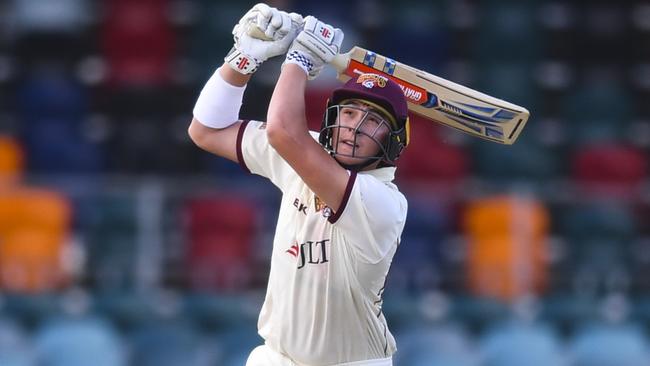
MATT RENSHAW
Cricketer
Born in England, Matt came to Australia with his family at the age of 10.
The cricketing skills he showed at Brisbane Grammar School soon provided the basis for a professional career.
At 19, Matt became Queensland’s youngest ever centurion, scoring 170 in his breakout innings.
He was called into Australia’s Test squad at the age of 20 to partner David Warner at the top of the order.
He scored 71 in his debut test on home soil in Brisbane, before scoring his maiden Test century the following Test in Sydney.
Matt became the first Australian cricketer to score 500 Test runs before turning 21.
In March 2018, he was recalled to the Australian Test squad from Australia for the fourth Test against South Africa in Johannesburg after opening batsman Cameron Bancroft became caught up in the infamous ball-tampering incident.
In April 2018, he was awarded a national contract by Cricket Australia for the 2018–19 season, earning a spot in the Test squad for the tour of the UAE against Pakistan.
In April 2019, he was not offered a central Cricket Australia contract for the 2019–20 season but has continued to show good form in the English league and hoping to reclaim his spot in the Australian team.
Many good judges of cricketers still claim he is Australia’s best long-term Test opening prospect.
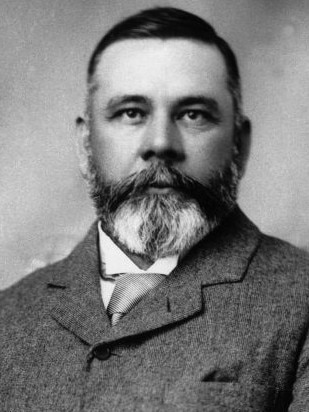
THOMAS BYRNES
Qld Premier
One of 11 children of poor Irish immigrants, Thomas won a state scholarship to Brisbane Grammar School.
After graduating, he obtained honours in Arts and Law at Melbourne University, taught at Xavier College, practised as a barrister, then succeeded Sir Samuel Griffith as Solicitor-General in 1893.
In April 1898 he was elected Premier of Queensland but passed away in October the same year.
He is commemorated by two statues, one in Centenary Place in Brisbane and the T J Byrnes Monument in Warwick.
The North Burnett town of Byrnestown is named after him, as is its main street Byrnes Pde.
St Thomas’s Catholic Church in Camp Hill, Brisbane, is another memorial to him after his sister organised for it to be built in his memory.
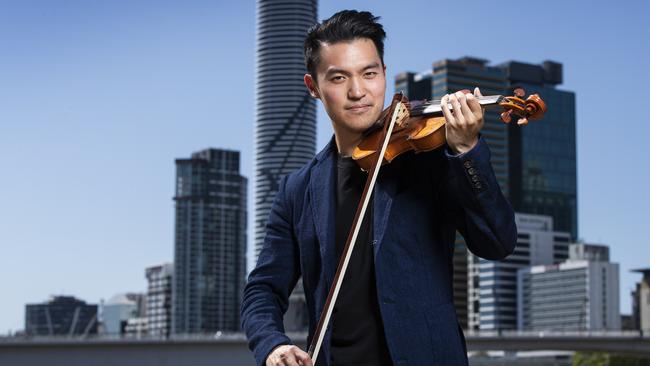
RAY CHEN
Violin virtuoso
Born in Taiwan, Ray began learning violin at the age of four and within five years had completed all 10 levels of the Suzuki Music Education.
He was invited to play solo with the Queensland Philharmonic Orchestra at the age of eight and also invited to perform at the opening celebration concert of the 1998 Winter Olympics in Nagano, Japan.
Ray was chosen as Australia’s 4MBS’s “Young Space Musician of the Year” in 1999 and was awarded by the Sydney May Memorial Scholarship of the Australian Music Examinations Board (AMEB) for being the youngest and most talented musician.
He came to the attention of the music world by winning the prestigious Yehudi Menuhin Competition for young violinists in 2008.
Ray also won a prized scholarship to the Curtis Institute of Music in Philadelphia in the US — known for taking only the most talented young musicians in the world.
Described as “one of the most talented and accomplished young violinists to have emerged from Australia”, he has studied under some of the world’s leading violinists and played with leading orchestras including the Mariinsky Theatre Orchestra in Saint Petersburg, the Royal Flemish Philharmonic, the National Orchestra of Belgium and the Luxembourg Philharmonic Orchestra.
He has a recording contract with Sony classical and plays a 300-year-old Stradivarius violin, once owned by famed Hungarian violinist Joseph Joachim, loaned to him by the Nippon Music Foundation, and reportedly worth $10 million.
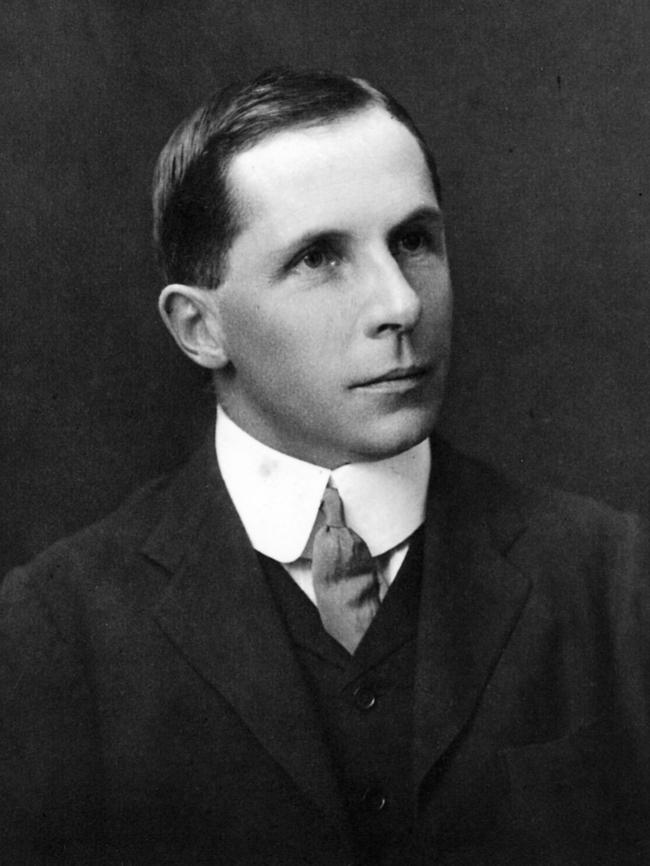
ROBIN DODS
Architect
One of Queensland’s most celebrated architects of the federation period, Robin designed St Francis’ Theological College at Milton, St Brigid’s Church in Red Hill, Shafston House at Kangaroo Point and many other public and private buildings.
He was also a founding member of the Brisbane Golf Club and designed its first and second club houses.
He went into partnership with Francis Hall and their company, Hall & Dods, designed several national enterprises including the AMP Society, the Bank of NSW, the New Zealand Insurance Co, JC Hutton & Co, the Australian Mercantile Land and Finance Company, the Engineering Supply Company of Australia as well as several local department stores.
Through Robin’s links with the medical profession, Hall & Dods became architects for both of the major hospitals in Brisbane at the time - Brisbane General Hospital and the Mater Misericordiae Hospital in South Brisbane.
He was heavily involved in the building of Brisbane’s St John’s Cathedral, with the east end, transepts and two bays of the nave completed under his direction. He designed other buildings in the cathedral group, including the schools in 1904 and the church offices in 1910.
He died at Edgecliff, Sydney, in July 1920
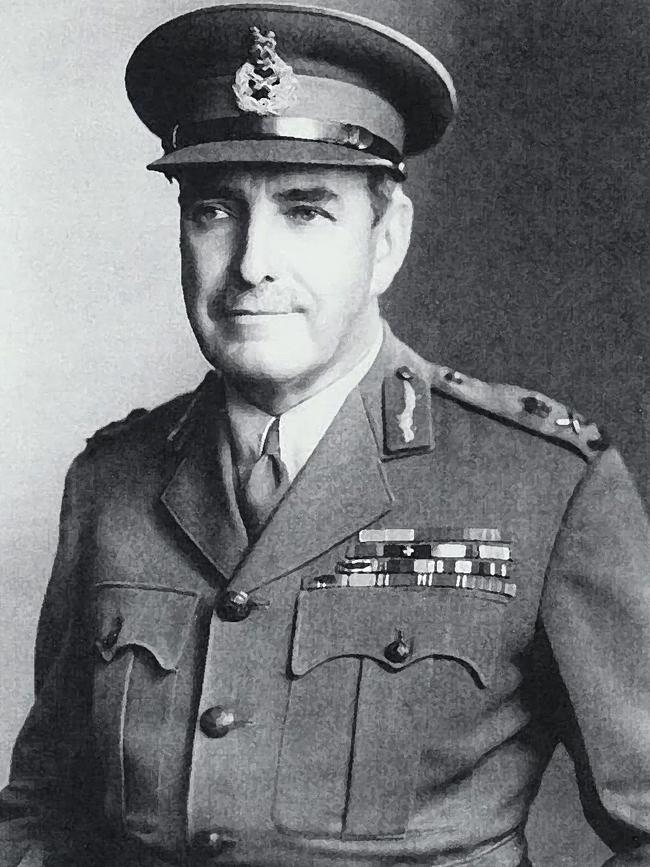
SIR JOHN LAVARACK
Soldier and Qld Governor
Sir John first served in World War I at Pozieres and commanded two field artillery batteries during fighting at the Somme and the advance on the Hindenburg Line.
By December 1917, he was a lieutenant colonel and took part in battles at Dernancourt, Villers-Bretonneux, Hamel and Amiens, while his hand in planning for the Battle of Hamel set the stage for several subsequent Australian victories.
After the war, Sir John returned to Australia and took up a post at the Royal Military College, Duntroon.
In 1933, after a period at the Imperial Defence College in London, he was made commandant of the Duntroon college and two years later was appointed Chief of the General Staff, the head of the Australian Army.
After the outbreak of World War II, Sir John fought in North Africa and at Tobruk, where he helped repel Rommel’s forces.
In 1946, he became Queensland’s first Australian-born Governor, serving two terms
until 1956, when he retired to his home in Buderim.
He passed away at his home in December 1957.
For his service during World War I, Sir John was awarded the Distinguished Service Order and the French Croix de guerre. He was also appointed a Companion of the Order of St Michael and St George in 1919.
In 1942, during World War II, he was appointed a Knight Commander of the Order of the British Empire and in 1954 was appointed a Knight Commander of the Royal Victorian Order.
In 1955, while Governor of Queensland, he was made a Knight Commander of the Order of St Michael and St George.
The Lavarack Barracks in Townsville are named in his honour.
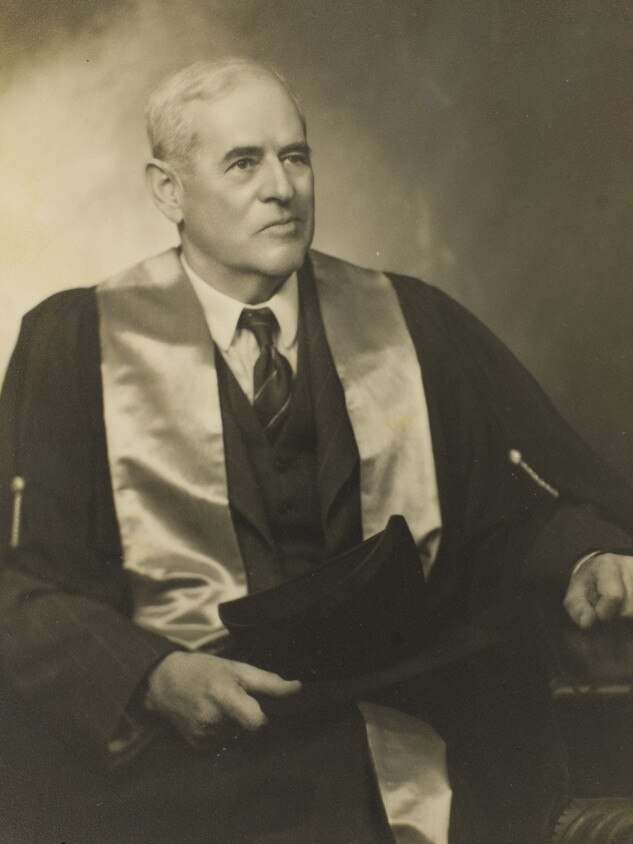
PROFESSOR ERROL MEYERS
Soldier and medical pioneer
After graduating from Brisbane Grammar School, Errol and his family moved to Sydney so he could study medicine at Sydney University.
He graduated with a medical degree in 1914 and worked at the Sydney Hospital as a house physician, resident pathologist and resident radiographer, before returning to Brisbane in 1915 and becoming the resident medical officer at the Brisbane General Hospital.
In 1916 Errol enlisted in the AIF and was appointed to the rank of Captain serving at the 13th Australian General Hospital and the Fraser’s Hill and Rifle Range Camps in Enoggera Barracks.
He embarked for overseas service in May 1917 and served in France until May 1918, when he was wounded in action with mustard gas.
After convalescence Errol was assigned to the 11th Australian Field Ambulance which took part in the final assault on the Hindenberg Line.
He was promoted to Major in July 1918.
After the war, he spent many years working to establish a medical school in Queensland, culminating in the inauguration of the Faculty of Medicine at the University of Queensland in 1936.
Errol was elected Dean of the Faculty of Medicine in 1942 and held the position for 12 years.
He died in Brisbane in February 1956 after many years of ill health, the result of being gassed during the war and was buried in the Jewish section of the Toowong Cemetery.
After his death, the ES Meyers Memorial Lecture was inaugurated in 1957 by the University of Queensland Medical Society to honour his role in establishing medical education in Queensland.
The lecture has since grown into a celebrated tradition in Australian medical circles.[6]
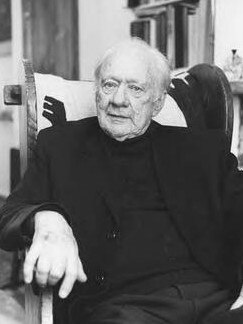
JACK LINDSAY
Author
The eldest son of celebrated artist and writer Norman Lindsay, Jack attended the University of Queensland after leaving Brisbane Grammar School, graduating with first class honours in Greek and Latin.
He began his literary career in 1923 as a poet with a book Fauns and Ladies, illustrated by his father.
In the 1920s he contributed stories and poems to a popular weekly magazine, The Bulletin, as well as editing the literary magazines Vision (with his father) and London Aphrodite.
Jack left Australia for England in 1926, never to return.
In the UK, he became a prominent member of the Communist Party and a prolific writer, publishing 169 books including 38 novels and 25 volumes of translations from Latin, Greek, Russian, and Polish, as well as art, literary, classical, historical and political studies, biographies and autobiographies written from a Marxist perspective.
Jack was awarded the Soviet Order of the Badge of Honour in 1967 and an Honorary Doctor of Letters by the University of Queensland in 1973.
He was a fellow of the Royal Society of Literature and the Australian Academy of the Humanities and in 1981 was made a Member of the Order of Australia.
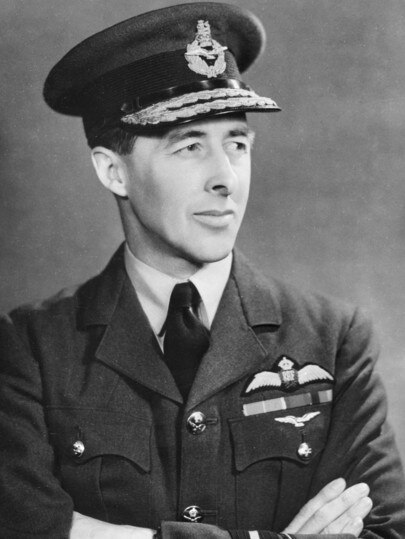
DONALD BENNETT
Aviation pioneer, bomber pilot and politician
Born in Toowoomba, Donald attended Brisbane Grammar School and after working in his father’s business, he joined the Royal Australian Air Force in 1930, qualifying as a pilot on the DH Moth and Westland Wapiti.
He developed a passion for accurate flying and precise navigation he left the service in 1935 to join Imperial Airways, spending five years specialising in long distance flights, breaking a number of records and pioneering techniques which would later become commonplace, notably air-to-air refuelling.
Donald was recommissioned into the Royal Air Force Volunteer Reserve in 1941 as a squadron leader and in July 1942 was appointed to command the new Pathfinder Force, an elite unit tasked with improving RAF Bomber Command’s navigation.
In 1943 he was promoted with the upgrading of PFF to group status to Air Commodore and then in December to Acting Air Vice-marshal — the youngest ever to hold that rank.
He remained in command of the Pathfinder Force until the end of the war, overseeing its growth to an eventual 19 squadrons
He returned to civilian life in the UK to pursue a variety of activities. He became a director of British South American Airways and designed and built both cars (Fairthorpes) and light aircraft.
Donald became one of the shortest-serving Members of parliament of the 20th Century when he was elected at a by-election in 1945 as Liberal MP for Middlesbrough West and was defeated soon afterwards in the 1945 general election — his parliamentary career lasting 73 days.
He received a CB, CBE and DSO and died at the age of 76 in September 1986.
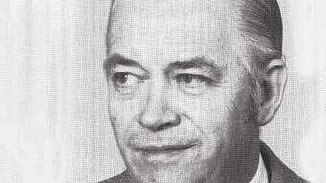
SIR RONALD JACKSON
Company chairman and government Adviser
Sir Ronald joined the Colonial Sugar Refinery in 1941 but the following year, having been mobilised in the Citizen Military Forces as a gunner, he transferred to the Australian Imperial Force.
He served in Papua as a sergeant in the 163rd Light Anti-Aircraft Artillery Battery.
After his discharge in July 1946, Sir Ronald returned to CSR and moved to the company’s headquarters in Sydney.
In 1951 he assisted in negotiations of the Commonwealth Sugar Agreement in London.
As head of the company’s sugar marketing division in the 1960s, Sir Ronald was instrumental in shifting Australian business toward Asia in the wake of Britain’s intention to join the EEC.
He built CSR’s connection with one of the largest and most successful mining companies operating in Australia, supplying the Japanese steel industry with iron ore.
In June 1972 he took over as general manager and chief executive officer of CSR, and under his leadership, the company further diversified into minerals and energy in the 1970s and 1980s.
In 1973 Sir Ronald was a member of Australia’s first trade mission to the People’s Republic of China and the following year the Whitlam Government appointed him chairman of a committee to advise on policies for the manufacturing industry.
In 1976 he was appointed AC for eminent achievement and merit in the field of industry and business management.
He was on the board of the Reserve Bank from 1975-1991 and after retiring in 1982, remained with CSR as a director and deputy chairman until March 1985.
Under Sir Ronald’s management, the company had developed into a large diversified industrial group with divisions responsible for sugar, building materials, aluminium, minerals, coal, and petroleum, and gross annual sales of more than $3 billion.
In retirement, he continued to serve on the board of the Reserve Bank of Australia, donating his fee to the Salvation Army.
The University of NSW awarded him an honorary doctorate of science in 1982, and in 1983 he was appointed AK.
From 1983 to 1991, Sir Ronald was chairman of both the Australian Industry Development Corporation and the Police Board of NSW. He also headed a committee to review Australia’s overseas aid program.
He was Chancellor of the Australian National University, Canberra, from 1987, until poor health forced his resignation in 1990.
Sir Ronald passed away in June 1991.
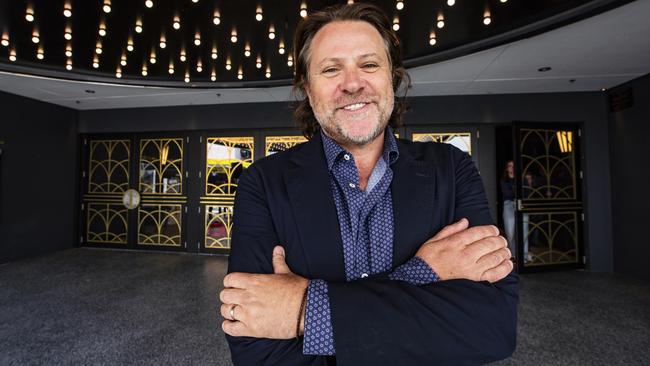
JOHN COLLINS
Musician
John developed his love of music while boarding at Brisbane Grammar School and it was there that he and classmate Ian Haug teamed up with Steven Bishop to form the first iteration of Powderfinger - a cover band playing pub rock classics - with John on bass guitar.
While studying at the University of Queensland they met Bernard Fanning and John Coghill, who joined the band as Bishop moved on to leave.
Darren Middleton joined the band in 1992 and between then and 2010 Powderfinger had a string of hits and successful albums, earning 18 ARIA Awards.
In 2009 as part of the Q150 celebrations, Powderfinger was named one of the Q150 Icons of Queensland for their role as “influential artists”.
After the band broke up in 2010, John began contemplating other careers and spent 18 months transforming an old World War II US aircraft hangar in the inner-Brisbane suburb of Newstead into the popular music venue The Triffid.
This year he went a step further, opening Fortitude Music Hall, a 3300-capacity venue in the heart of the Valley’s entertainment district

IAN HAUG
Musician
As with John Collins, Ian was one of the founding members of popular Brisbane band Powderfinger.
Originally the band’s singer, Ian stepped aside to focus on his role as lead guitarist when Bernard Fanning joined the band.
In 1996, Ian and Grant McLennan formed the Far Out Corporation and made one record - and performed a handful of shows to critical acclaim.
When Powderfinger took a break in 2004 to allow the band members to begin families and pursue side projects, Ian formed The Predators with the original Powderfinger line-up of drummer/vocalist Steven Bishop and bassist John Collins.
More recently, Ian joined Australian rock legends The Church as a full-time member and continues to tour and record with them.
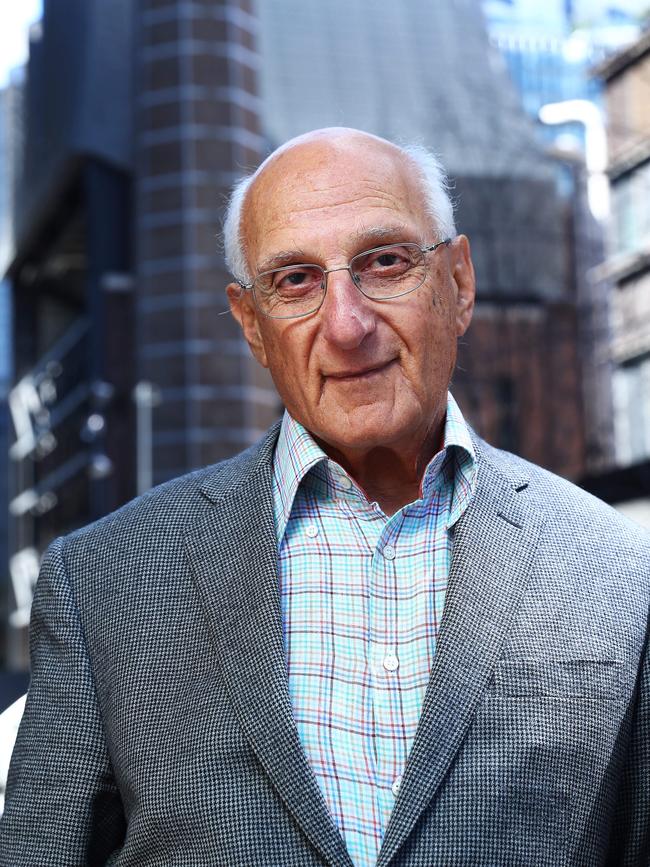
DAVID MALOUF
Author
After attending Brisbane Grammar School, David studied at the University of Queensland and lectured for a short time before moving to London, where he worked as a teacher.
He returned to Australia in 1968, taught at Brisbane Grammar for a period of time and lectured in English at the Universities of Queensland and Sydney.
His first novel, Johnno, published in 1975, is the semi-autobiographical tale of a young man growing up in Brisbane during World War II and draws on his time at Brisbane Grammar.
David has won numerous awards including the Miles Franklin Prize for his novel The Great World (1990) while Remembering Babylon (1993) was short-listed for the Booker Prize.
He was awarded the Neustadt International Prize for Literature in 2000 while Remembering Babylon also won the International IMPAC Dublin Literary Award in 1996.
David won the inaugural Australia-Asia Literary Award in 2008 and in 2009, as part of the Q150 celebrations, he was named one of the Q150 Icons of Queensland for his role as an “influential artists”.
In 2016 David received the Australia Council Award for Lifetime Achievement in Literature.
The David Malouf Gallery opened at Brisbane Grammar in 2018.
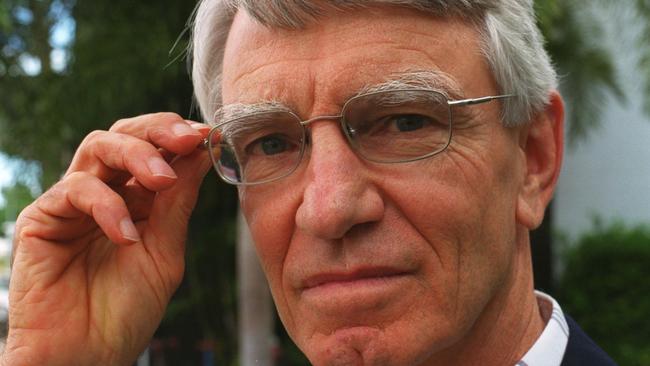
CLIVE HILDEBRAND
Engineer and business leader
Clive studied for a Bachelor of Engineering in Mining at the University of Queensland after leaving Brisbane Grammar School and in 1960 became a Rhodes Scholar at Oxford University.
After returning to Australia, he started his mining industry career as a miner at Mount Isa.
During his sterling career he has been a non-executive director of Oil Search Ltd, until mid- 2007, previously having also been director or chairman of a number of other public companies and GOC’s since retiring as managing director of coal company QCT Resources Ltd in 1994.
From 1995-2002 he was chair of the Sugar R&D Corporation.
In 2002 Clive published his Independent Assessment of the Sugar Industry, commissioned by Minister Warren Truss.
In addition to his business interests, as Chair of Chairs of the Rural R&D Corporations he was member of Canberra’s co-ordinating Committee on Science and Technology from 2001-02.
Clive has been president of the Australian Institute of International Affairs (Qld) and is a member of the State Ministerial advisory body on public health, Health Promotion Queensland.
Clive has had an ongoing involvement in higher education, most recently with Griffith University as a council member for eight years, Honorary Professor in business-related schools, a member of the Griffith University Quality Committee during the CQAHE rounds of quality audits of Australian universities in the early 1990s and a member of the Advisory Board of the Key Centre of Ethics, Law, Justice and Governance.
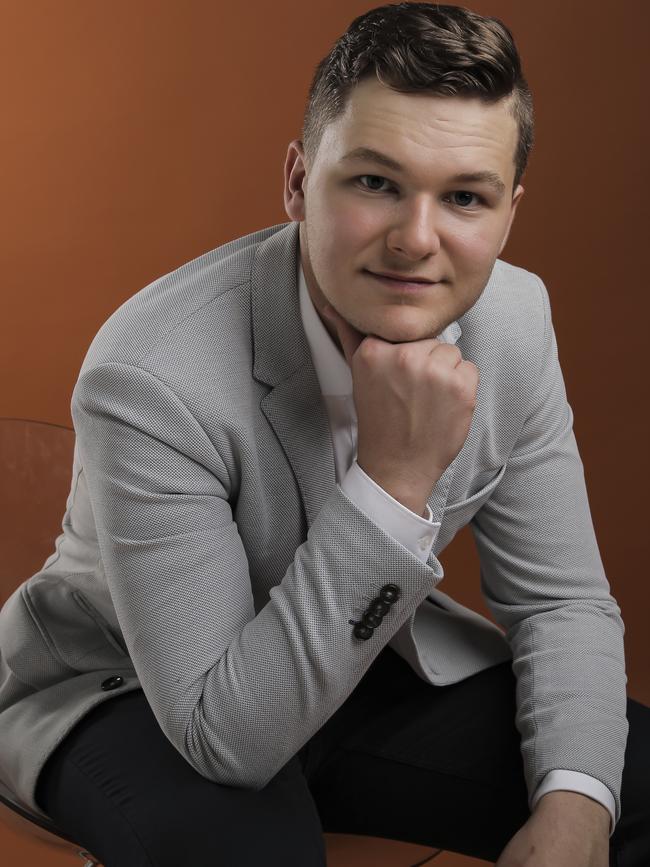
CONNOR O’GRADY
Fashion designer
Connor first got his hands on a sewing machine at the age of seven and within a year had trademarked his name as his label.
He was given his first sewing machine by his grandfather, won his first Fashion in the Field award when he was nine and created his first custom gown at 11 for Sarah Holmes, wife of Brisbane Lions chief executive Malcolm, to wear to the 2012 Brownlow Medal gala.
That attracted the attention of the national media as well as Australian designer Alex Perry, who met Connor and stayed in touch for several years.
Two years after entering his first Ekka Natural Fibres Make and Model competition, Connor was named Grand Champion across both adult and children’s categories with entries including a silk wedding dress, handpainted ball gown and four-piece suit. He was only 12.
By the age of 17, he was asked to judge the dressmaking and design competition at The Royal Queensland Show because he had won it too many times.
In 2016, Connor won the Australian Wool Fashion Awards, the youngest person, at 15, and only the second male to do so in the competition’s 32-year history.
His skills saw him named 2018 Australian Young Designer of the Year and Brisbane’s 2019 Young Citizen of the Year.
Last year he was accepted into one of the most eminent schools for design — the London School of Fashion — on a year-long foundation course that he began in September.
That guarantees Connor a place in the three-year Bachelor of Fashion (womenswear) at the affiliated Central Saint Martins.
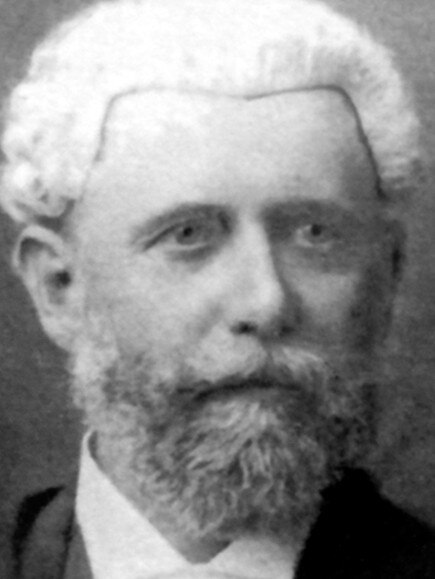
SIR CHARLES POWERS
Politician and Justice of the High Court
A foundation pupil of Brisbane Grammar School in 1869, Sir Charles studied law and established a practice in Maryborough where he was also an alderman in 1881, mayor in 1883, and a member of the Burrum Divisional Board in 1886.
Interested in the development of the northern coal trade, in 1887 he went to London and formed the Isis Investment Co which operated Torbanlea colliery. He was chairman of its local board of directors.
Sir Charles entered politics in 1888 as an Independent MP for Burrum district and served as Postmaster-General and Minister for Public Instruction until August 1890.
In 1891 he was a member of a royal commission on the establishment of a Queensland university and then represented Maryborough in parliament from 1893-96.
Sir Charles was admitted to the Bar in March 1894 but continued to practise as a solicitor and in November 1899 was appointed Crown solicitor. He then became first Commonwealth Crown Solicitor in July 1903
He was also a fine cricketer who captained Queensland against a touring English side.
Sir Charles was appointed a Justice of the High Court in 1913.
He passed away in Kew, Victoria, in 1939.
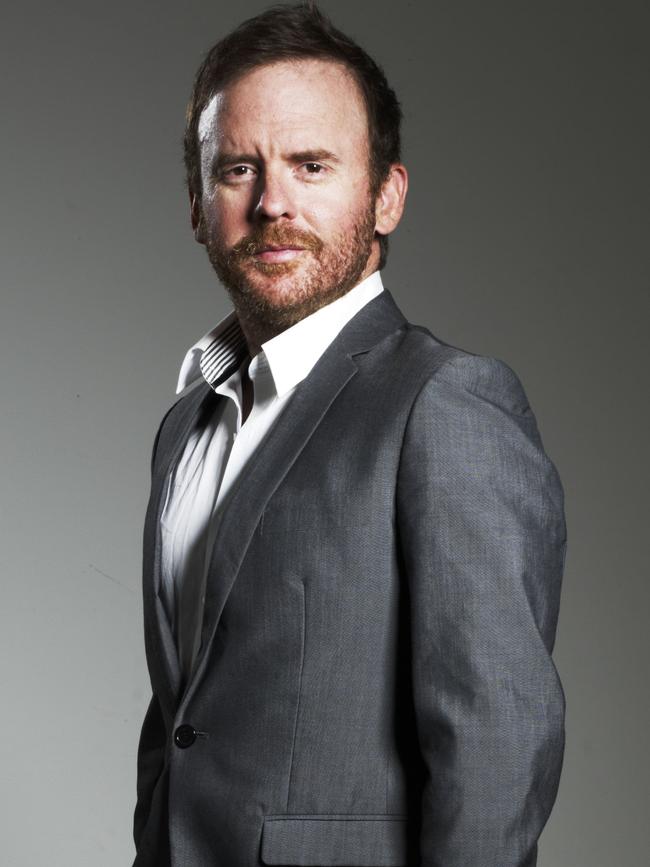
ADAM ZWAR
Actor, voice artist and writer
After graduating from Brisbane Grammar School, Adam completed a journalism degree at the University of Southern Queensland in Toowoomba and subsequently began studying acting.
After working for the Cairns Post and then Melbourne’s Sunday Herald Sun, he decided to pursue his interest in the film industry and in 1997 left his full-time job to work as a freelance journalist and freelance actor.
He performed in theatre, numerous television commercials, as well as having guest roles in Neighbours, Blue Heelers and Sea Change.
After making guest appearances in several Australian television shows in the late 1990s, Adam co-wrote, produced and co-starred in the short film Wilfred in 2002 and then went on to co-create and co-star in the television series, Wilfred, screened on SBS in 2007.
Later that year, he won the AFI Award for Best Performance in a Television Comedy.
He co-created the comedy Lowdown, which went on to win Best Television Comedy Screenplay at the Australian Writers Guild Awards in 2010 and 2012.
Lowdown would also win Best Television Comedy at the 2013 AACTA Awards.
More recently, Adam has created the successful Agony series for the ABC, featuring some of Australia’s funniest and brightest comedians and social commentators.
He also co-wrote and co-starred in the movie Rats and Cats and from 2006 to 2010 was head writer on the AFI Awards, working alongside hosts Geoffrey Rush and Stephen Curry.
His other acting credits include playing Martin Gero in two series of the crime drama Rush, as well as the SBS series Carla Cametti PD, the ABC television movie Valentine’s Day, the crime drama Underbelly and the drama Top of the Lake.
Adam’s other screen-acting credits include both seasons of the sketch comedy series The Wedge, Blue Heelers, Stingers, CrashBurn, SeaChange, BackBerner, Foxtel’s drama Tangle and MDA.
His stage-acting credits include Kissing for Australia, for which he received a Green Room Award nomination, and Cyrano de Bergerac for the Melbourne Theatre Company.
He has written several plays and is one of Australia’s leading voice-over artists lending his voice to several major advertising campaigns.
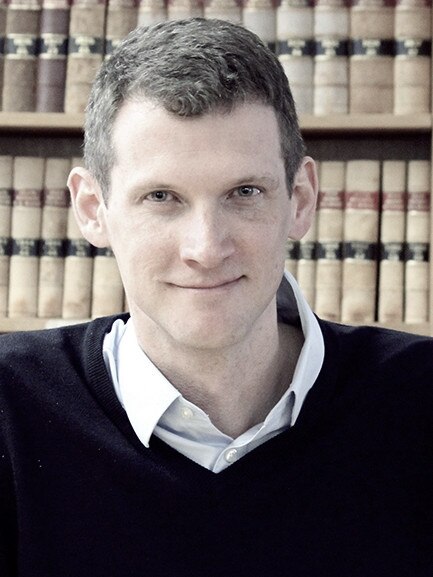
RYAN GOSS
Academic
After undergraduate study at the University of Queensland, Ryan completed postgraduate studies at Oxford, supported by a Rhodes Scholarship.
In 2011 he was appointed Junior Research Fellow in Law at Lincoln College, Oxford, where he taught undergraduates and postgraduates.
Ryan’s research has a particular focus on European human rights law and Australian public law.
His research publications include the book, Criminal Fair Trial Rights, which was longlisted for the Inner Temple Book Prize 2015, short-listed for the Birks Prize 2015, and cited by judges in the European Court of Human Rights in 2016.
Ryan’s outreach work has been recognised as a joint winner of the ANU Vice Chancellor’s Award for Public Policy and Outreach in 2016 and of the ANU Media Award for Improving the Quality of Public Debate the same year.
Also in 2016, he was recognised with the ANU College of Law’s Award for Teaching Excellence and the following year was nominated for the ANU Vice-Chancellor’s Awards for Excellence in Education.
He also received a Citation for Outstanding Contributions to Student Learning in the Australian Awards for University Teaching 2017 from the Commonwealth Department of Educating and Training.
Ryan left Oxford University in 2013 to join the teaching staff of the Australian National University, specialising in constitutional law and human rights law.
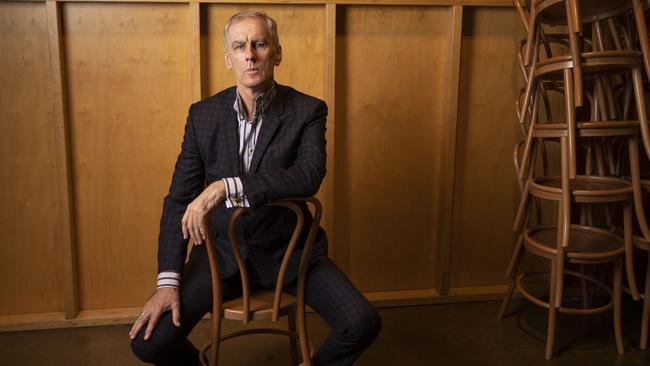
ROBERT FORSTER
Musician
It was while he was at Brisbane Grammar School that Robert began learning to play the guitar, ultimately leading to him co-founding indi-rock band The Go-Betweens with Grant McLennan in 1997.
The pair met while completing a theatre arts course the University of Queensland and released nine albums during their collaboration.
Their sixth, 16 Lovers Lane, produced the hit Streets of Your Town which took top spot in the 2018 Songs of Brisbane poll.
The album was placed 12th on The Hundred Best Australian Albums list, and their last album, Oceans Apart, won the 2005 ARIA award for Best Adult Contemporary Album.
After the band broke up in 1990, Robert moved to Germany to record a solo album but by 1993 had returned to Brisbane to record his second solo album.
In 2005 he was appointed music critic for The Monthly and a year later won the Geraldine Pascall Prize for that writing.
A collection of his journalism, The 10 Rules of Rock and Roll, was published in 2009.
Robert left The Monthly in 2013 to devote more time to writing his memoir, Grant and I, in memory of Grant McLennan, who had died of a heart attack in 2006.
In June 2010, the Brisbane City Council celebrated the opening of the Go Between Bridge, named in honour of the band.
In 2015, the University of Queensland, awarded Robert an honorary Doctor of Letters.
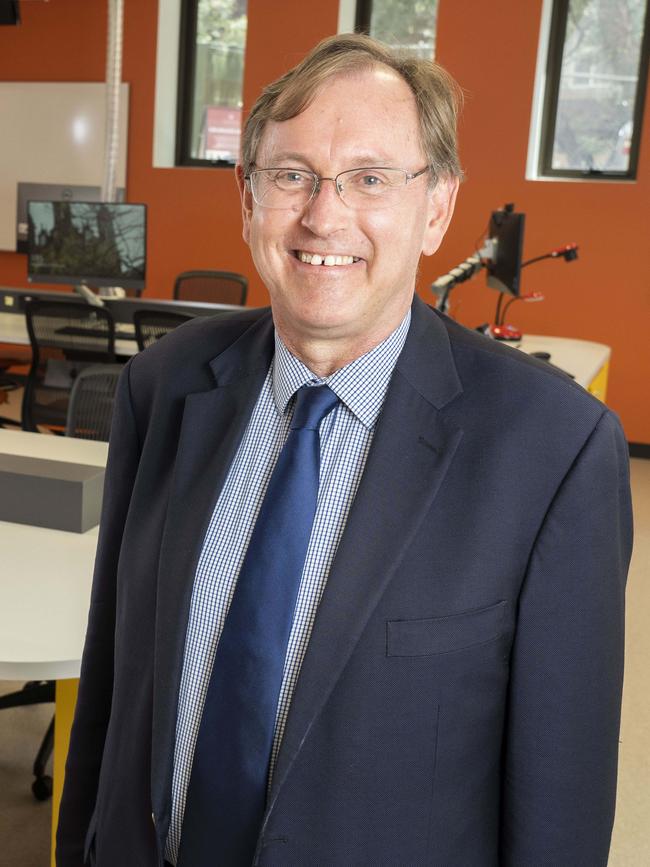
PROFESSOR DON MARKWELL
Academic, author and educator
Born in outback Quilpie, Don was educated at Brisbane Grammar School and then the University of Queensland, the University of Oxford (where he was the 1981 Rhodes Scholar for Queensland) and Princeton University, studying economics, law and international relations.
He was the first Rhodes Scholar and only the second Australian to serve as Warden of Rhodes House, the global CEO of the Rhodes Trust and the Rhodes Scholarships.
He is credited with helping to initiate the review of undergraduate women’s leadership at Princeton University and helping to make scholarships in South Africa open to women.
In 2012, Don stepped down as Warden of Rhodes House to return to Australia and become the executive director of the Menzies Research Centre, a public policy think tank associated with the Liberal Party.
In that role, he consulted with Julie Bishop on development of the New Colombo Plan to encourage Australian university students to study abroad in Asia-Pacific universities.
In October 2013, following the federal election, he was appointed Senior Adviser on Higher Education to the new Australian Minister for Education, Christopher Pyne.
Two years later, when Malcolm Turnbull replaced Tony Abbott as Prime Minister, he became Senior Adviser to the new Leader of the Government in the Australian Senate, George Brandis, who was also Attorney-General.
Don gave constitutional advice to the Prime Minister and Attorney-General during the prorogation, recall and double dissolution of the Australian parliament in 2016.
He became Head of St Paul’s College at the University of Sydney in early 2018 and in November this year will take up the position of Warden of St Mark’s College, at the University of Adelaide.
His academic works include contributions to international relations, political science, the history of economic thought, constitutional history and public law, and education.
He spoke at the state memorial service or funeral of two Governors-General of Australia - Sir John Kerr and Sir Zelman Cowen - and his portrait hangs at Trinity College, University of Melbourne and Rhodes House, Oxford.
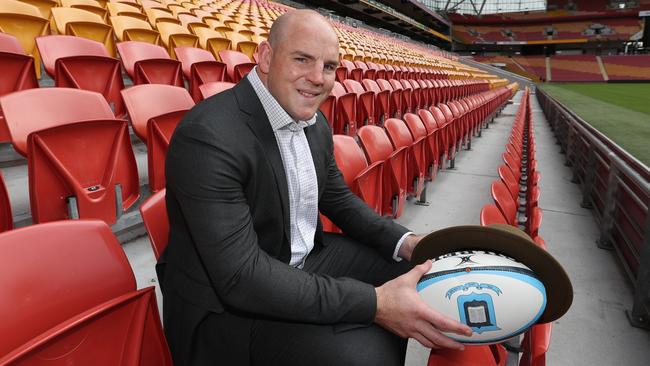
STEPHEN MOORE
Rugby union star
Stephen came up through the junior rugby union ranks, playing with Brisbane Grammar School before joining the University of Queensland and representing the Australian Under-19s.
He made his Super 12 debut in 2003 for the Queensland Reds and was first included in the Wallabies squad in 2005 and went on to win 129 international caps for Australia, including captaining the team.
Stephen is the 14th most capped player of all time, has the second most Test appearances for Australia behind George Gregan and is the only Australian hooker to have played 100 Tests. He is also the most capped Australian Super Rugby player of all time and is one of only two players in Australian rugby history to have achieved 100 Test and 150 Super Rugby appearances.
He was made a Member of the Order of Australia in the 2019 Queen’s Birthday Honours in recognition of his “significant service to rugby union, and to charitable organisations”.
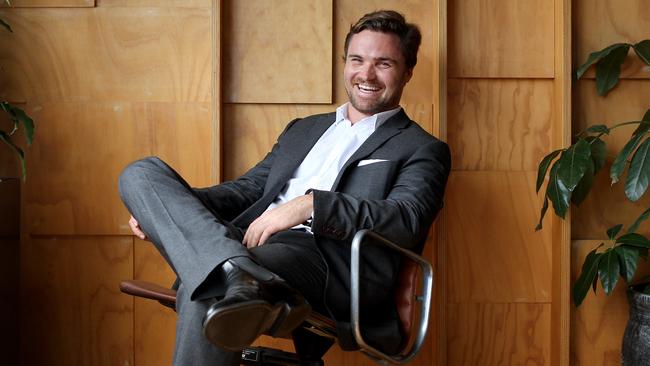
CHRIS RAINE
Founder of Hello Sunday Morning
After a boozy New Year’s Eve in 2008, Chris accepted a dare from his mates to not drink for an entire year.
It was the start of a journey that completely changed his life, his career and his relationship with alcohol.
And while he didn’t know it at the time, he was taking the first steps along a path to helping thousands of other Australians assess their own drinking habits.
Chris is the founder and CEO of Hello Sunday Morning, a not-for-profit organisation he created to educate and support people to reflect on how and why they consume alcohol.
The focus of the organisation is to build technology that both influences individual behaviours and changes the culture around us.
Hello Sunday Morning now has a 14,000-strong community, each of their stories an essential contribution to a better drinking culture.
Chris was the University of the Sunshine Coast’s 2011 Outstanding Alumnus of the Year and Queensland’s 2012 Young Australian of the Year.
He is a member of USC’s Queensland Mind and Neuroscience Foundation Board and in 2017 was named a Westpac Social Change Fellow.
He recently completed an MBA at Oxford University’s Skoll Centre for Social Entrepreneurship, where he wrote a thesis on the business case for investment in technology to help address addiction in society.
His long-term goal is to harness the data available via mobile and online technologies to understand what triggers risk-taking behaviours, and to facilitate better access to community and clinical support.
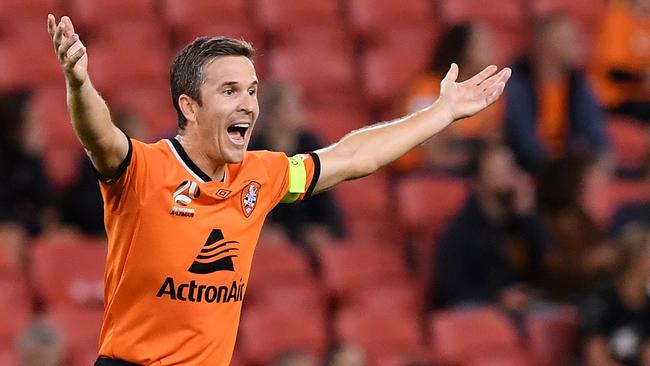
MATT MCKAY
Soccer player
Matt spent his formative youth years at both the QAS and AIS and his first club signing was in 1991 for the Sunnybank Saints Soccer Club.
He was signed by the Brisbane Strikers in 2001 and stayed until he signed on as an inaugural member of the Queensland Roar.
He was named club captain midway through the 2009 season and has played the highest number of games for the Roar, with 184 appearances.
Matt led Brisbane to its first A-League premiership and championship in 2011 and played a key role in its victorious 2013-14 season.
He has played with Rangers in the first division of the Scottish Premiership and also with Changchun Yatai FC in the Chinese Super League and South Korean club Busan IPark.
Matt played an integral role in Australia’s second placing in the 2011 AFC Asian Cup.
He was also part of the Australian squad at the 2014 World Cup and 2015 AFC Asian Cup.
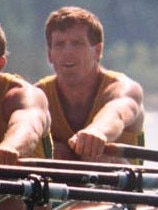
RICHARD POWELL
Olympic rower
Richard developed his rowing skills while at Brisbane Grammar School, rowing in the six seat as part of the school’s 1977 crew which won the coveted Head of the River.
He went on to represent Australia at two Olympic Games, finishing fifth in the quad sculls in Seoul in 1988 and ninth in Barcelona in 1992.
He is currently head coach at the University of Queensland Boat Club.


